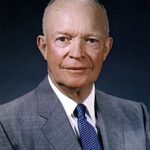The Guatemala Coup 1954 Decision
President Dwight Eisenhower approved Operation PBSuccess in 1954. This CIA operation aimed to overthrow Guatemala’s democratically elected President Jacobo Árbenz. The decision prioritized United Fruit Company’s commercial interests over democratic principles. Árbenz had implemented land reforms threatening the American corporation’s vast holdings.
Corporate Pressure and Cold War Context
United Fruit Company owned 550,000 acres of Guatemalan land. 💰 The company paid minimal taxes while keeping most land unused. Árbenz’s Decree 900 redistributed idle land to 100,000 peasant families. Company executives lobbied Washington intensively, claiming communist infiltration threatened American interests.
Operation PBSuccess Implementation
⚠️ CIA Director Allen Dulles orchestrated the covert operation. His brother John Foster Dulles served as Secretary of State. Both had financial ties to United Fruit Company. The agency recruited Guatemalan Colonel Carlos Castillo Armas to lead the coup. 📊 The operation cost $2.7 million and involved psychological warfare, armed intervention, and diplomatic pressure.
Impact:
Immediate Consequences of Guatemala Coup 1954
🔥 The coup installed Colonel Castillo Armas as military dictator. He immediately reversed Árbenz’s land reforms, returning property to United Fruit Company. Over 9,000 suspected communists faced arrest or execution. Democratic institutions collapsed as military rule replaced constitutional government.
Decades of Civil War
The intervention triggered Guatemala’s 36-year civil war from 1960-1996. 📉 Over 200,000 Guatemalans died in the conflict. The military committed genocide against Mayan communities. Rural poverty increased dramatically as land concentration returned to pre-reform levels.
International Ramifications
🌍 The Guatemala coup became a Cold War template for US interventions. It preceded similar operations in Iran, Chile, and Nicaragua. Latin American nations lost trust in US commitment to democracy. The intervention demonstrated how corporate interests could drive foreign policy decisions, undermining America’s international credibility and moral authority.
